Over the last few years, the number of online MBA programs in America have exploded. Though there are several online MBA rankings (and a few major publications who list options), many of them still don’t tackle one of the largest concerns of potential students.
Featured MBA Programs
Namely, are online student outcomes as good as those from traditional schools? For this reason we’ve decided to come up with our own MBA rankings at Best College Reviews that are largely centered on student outcomes. A second question we wanted to address in our rankings was the question of whether or not online MBAs limit students abilities to specialize. In short, we’re ranking the most flexible programs, with the largest number of program specializations, and the best student outcomes. Our methodology for ranking the best online MBAs can be found at the end of our ranking.
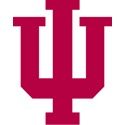
Indiana University’s Kelley school of business was the first top-20 business school in the nation to offer graduate business programs online. With the second highest average GMAT score on our list (636), admissions are competitive. The ability to take between two and five years to graduate, and choose from among 6 specializations lends flexibility to the Kelley Direct Online program that is unmatched in top tier business programs. As far as outcomes, the average Kelley graduate sees their salary rise between 33 and 66%, and all students – whether traditional or online – have access to Kelley’s world class career services. Over $104,000 is the average starting salary for graduates from Kelley Online.
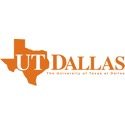
The University of Texas–Dallas Naveen Jindal School of Management’s online program was founded in 1999-2000 and offers two tracks: the global leadership executive MBA, and the project management track. A healthcare management for physicians specialization is also available for qualifying students. The Global Leadership Executive MBA involves three on-campus retreats, one international retreat, and a 10-day international study tour. As far as outcomes, UT Dallas ranks highly, with an average MBA graduate starting salary of $81,037. UT Dallas ranks #9 in our rankings for living alumni, with 7082.
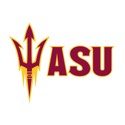
Arizona State University’s W.P. Carey School of Business is a top ranked business school that entered the online space slightly after Indiana University–Bloomington. With almost 15 years experience, Carey School of Business excels in outcomes, ranking third for average salary at graduation which comes in at $98,093. They also rank third for living alumni, of which they have over 17,000. Classes are taught by the same faculty that teach the full-time and part-time traditional MBA program. A one-course-at-a-time curriculum is offered to online cohorts, and the choice of up to four specializations. Students may also couple an online MBA with another degree to accelerate their education and save money.
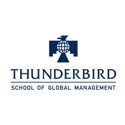
The Thunderbird School of Global Management deserves its name, as the #1 ranked school of international business from a number of ranking organizations. Their Global MBA program is blended, requiring some on-campus meet-ups, and lasts for 19 months. It’s also filled with international perspectives, with over half of the class composed of non-US students. Thunderbird ranks highly in outcomes for our ranking, coming in at #1 for living alumni, with over 38,000, and #4 for salary, at $83,200. Admission standards are relatively rigorous with an average GMAT score of 585, and a 62% acceptance rate to the program. An average of 2 years work experience is recommended, but the average student has a good bit more, coming in at 34 years old.
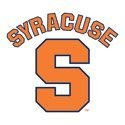
Syracuse University Whitman School of Management’s online MBA was founded in the 2001-2002 school year. The program offers a wide variety of specializations, including accounting, entrepreneurship, finance, marketing management, and supply chain management. Outcomes from Whitman School of Management are good, comming in at #5 for living alumni (9,209), and #4 for starting salary ($90,000 from the full time two-year program, with an average $10,000 signing bonus). The average GMAT for entrants is also ranked #4 at 600. The student-faculty rate for Whitman MBA courses is 11 to 1.
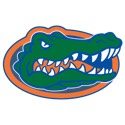
The Hough Graduate School of Business consistently ranks as a top program by a variety of ranking institutions and metrics, including #4 in the global rankings by
Financial Times and–for the online program– being called “one of the happiest online mba programs on Earth” by
Poets and Quants. Their Internet MBA falls under their working professional MBA program and is offered with two timeframes: a two-year (27 month) option open to students of any undergraduate degree major, and a one-year (16 month) accelerated option open to business degree majors who have graduated in the last seven years. Both options require two years of professional work experience, and a relatively high GMAT (their average score is 584).
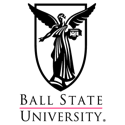
Ball State University’s online MBA was founded in the early 1990’s, and is part of a three versions of the same program: main campus, all online, or blended. Outcomes for the program are good, with the second ranked starting salary of $100,000 at three months out, as well as a living alumni network of 2,280. A student-faculty ratio of six to one, as well as competitive admissions with an average GMAT of 533 ensure quality engagement in the classroom. Five specializations are offered (and a more general route), they include entrepreneurship, finance, operations management, sales management, and health economics, policy, and administration.
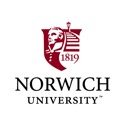
The nations oldest military college has transitioned to be one of the leaders in the online education space. Their online MBA program was founded in 2000-2001. Norwich offers five specializations for their MBA: construction management, finance, organizational leadership, project management, and supply chain management and logistics. They have a low acceptance rate for an online program, ranking #2 in our rankings with 42% of applicants being accepted. For students with professional experience or prior academic knowledge of business, the program may be accelerated to as little as 18 months.
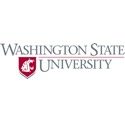
Washington State University Carson College of Business’ online MBA is a relative newcomer to the online MBA scene, being founded 2007-2008. Though the larger University has close to 20 years of experience in the online space, and 50 years in teaching MBA courses. Washington State University’s online MBA is relatively selective, with an average entrant GMAT score of 567 and an acceptance rate of 51% (ranking them #9 and #5 in our ranking, respectivally). Three concentrations, granted through a wider variety of electives, are available at Washington State’s online MBA: marketing, international business, and finance.
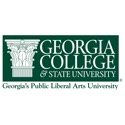
The Georgia College and Stat University’s Georgia WebMBA offers a highly ranked online MBA course that’s flexible as well as cheap. The online program is currently small, with nearly as many full time professors as there are students. Outcomes are good for the Georgia WebMBA, with starting salaries reported at $71,100 on our list (8th in our rankings), and over 2,000 living alumni (16th in our rankings). Admissions are relatively selective, with an average GMAT for entrants of 544, and an acceptance rate of 62%.
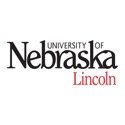
The University of Nebraska–Lincoln’s online MBA was founded in 2002-2003, and offers specializations in business analytics, supply chain management, international business, finance, and marketing. Admissions are competitive, with the highest average entrant GMAT of our ranked schools (641), and two years work experience, a 3.0 GPA and 400+ GMAT score as suggestions for applicants. As far as outcomes, the MBA has over 2,600 living alumni, and an average starting salary of $65,873.
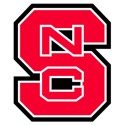
North Carolina State University was founded in 2011-2012, and while still fairly small (with 40 current students), offers some unique choices. An extremely flexible program allows for students to finish in as little as 21 months, or take as long as 6 years to complete the program. Students may also opt into face-to-face Professional MBA Program courses as they wish. Outcomes are good from NC State’s online MBA, with an average starting salary of $67,000 for their graduates, and a living alumni network of 1,422 (ranked 10th and 19th, respectivally).
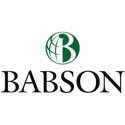
Babson College’s Blended Learning Program lasts for 21 months and –while primarily online– requires face-to-face sessions every seven weekends in either Wellesley or San Fransisco. Outcomes for Babson are great, with an average starting salary of $91,500, and 17,376 living alumni (ranked #3 and #2, respectivally). At undergraduate, graduate, and distance-learning levels, Babson College is recognized as a leader in teaching entrepreneurship.
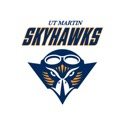
UT Martin’s online MBA keeps student cohorts small, with 20 students grouped together for the 20-month program. A low student-faculty ratio of five to one further ensures individual attention, but only for qualified students. UT Martin’s online MBA has the lowest acceptance rate of any online MBA program on our list, accepting only 42% of applicants. There are no specilizations, but the program is noted for its focus on the financial services and banking industries.

Northeastern University’s online MBA was founded in 2006-2007, and draws from the institution’s experience running a top ranked traditional program. Outcomes are good for the program, with an average starting salary of $73,500, and a living alumni network of over 15,000 (ranking the metrics #9 and #4, respectivally). Northeastern’s online MBA is also tied for first in our ranking for number of specializations offered, including finance, healthcare management, high technology management, innovation entrepreneurship, international management, marketing, supply chain management, and sustainability.
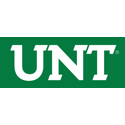
The University of North Texas online MBA program was founded in 2007-2008, and has been highly ranked since. The University offers largely the same courses in either fully online, blended, or traditional settings. Though students must take 100% of classes online to stay in their online program. Online MBA specializations at North Texas include strategic management, marketing, and finance. A lot student-faculty ratio (four to one), and rigorous admissions standards (the average GMAT score is 516, and the acceptance rate is 55%) ensure quality teaching momeents at the University of North Texas.

The Auburn University Online MBA was founded in the early 1990’s, and today offers a program that mirrors their full-time MBA, and can be coupled with dual degree options such as an MSBA-Finance, Management Informations Systems, and Industrial and Systems Engineering degree. Auburn’s online MBA has an average entrant GMAT score of 539, and an acceptance rate of 72% (ranking it #15 and #13, respecivally). For outcomes, Auburn boasts a starting salary of $62,600 as well as 5,856 living alumni.

Quinnipiac University’s online MBA program was started in 2009-2010 and has been highly ranked since its creation. Besides offering the same instruction and classes as their traditional program, students can specialize in six areas including computer information systems, finance, health care management, international business, management, and marketing. Admissions are selective at Quinnipiac’s online MBA, with an average GMAT score of 540, and a 76% acceptance rate.
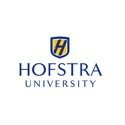
Hofstra University’s online MBA program began in 2011-2012, and while small provides a quality educational experience through a low student-faculty ratio and selective admissions. Specializations include strategic business management and strategic healthcare management. A residency requirement includes student interaction with New York City industry leaders and global corporations. Outcomes of the program include a $61,900 starting salary and a 7,500+ network of living alumni (ranked at #15 and #8, respectivally).
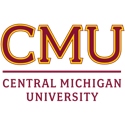
Central Michigan University’s online MBA was founded in 2007-2008, and offers a number of specializations including ERP emphasis featuring SAP Software, human resources management, logistics management, marketing, and value-driven organization. Admissions are selective, with the third lowest acceptance rate (44%) in our rankings. The average GMAT for University of Central Michigan’s online MBA is 495. The average starting salary is $53,200, and there is a wide and varied alumni network.
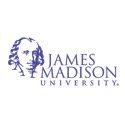
The James Madison University online MBA was founded in 1999-2000, and features specializations in innovation and information security. Both programs are “blended” and require some on-campus study. James Madison’s online program offers one of the best student-faculty ratios in our ranking (three to one). Outcomes are also good, with an average starting salary of $75,000, and a network of living alumni of 1,768 (ranked #8 and #17, respectivally).

Arkansas State University’s online MBA was founded in 2010-2011, and provides a general track as well as a specializations in supply chain management, finance, healthcare administration, management information systems, and international business. A student-faculty ratio of two to one ranks second on our list. Admissions are selective with an average GMAT score of 561. Outcomes are good with an average starting salary of $59,350, and a strong living alumni network.
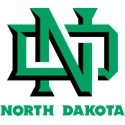
The University of North Dakota’s online MBA was founded in 2007-2008. The online program meets for live sessions once a week, communicates asychronously, and at a normal course load takes two years to complete. The online program features a good student-faculty ratio of nine to one, as well as an average GMAT score of 536. Though salary data for the school is not tracked, there is a large alumni community of 2,617 graduates.

Cleveland State University’s Mobile Accellerated MBA is the first online, 1-year MBA accredited by the AACSB. The program was founded in 2011-2012, and features strong outcomes including an average starting salary of $55,800, and a network of 8,950 living alumni. The student faculty ratio is four to one, and though the program doesn’t offer an specializations, it is one of the only accredited one-year programs offering an masters in business administration.

The SUNY Oswego online MBA was founded in 2011-2012, completing the schools offerings which include traditional, online, and hybrid MBA programs. The school’s average GMAT score is 511, and offers specializations in both general management and health services administration. SUNY Oswego also offers a large living alumni network, as well as a two to one student-faculty ratio.
Best Online MBA Ranking Methodology
- Selectivity (30%)
- 50% of selectivity is based on GMAT scores.
- 50% of selectivity is based on admission rates.
- Outcomes (50%)
- 50% of outcomes is based on starting salary of business school graduates.
- 50% of outcomes is based on the number of living alumni.
- Number of specializations (10%)
- Student Faculty Ratio (10%)
Note: As the schools in our ranking do not differentiate between online and traditional programs when granting diplomas, salary data is from the traditional MBA programs. For the small number of schools without salary data, the median salary of all reporting institutions was granted. For the small number of schools without exact living alumni data, living alumni values were estimated from the size of traditional and MBA program classes and the number of years respective programs have been in existence. Schools with both salary and living alumni data missing were not ranked.
Online MBA
APU’s MBA program offers a highly accessible and comprehensive online option, allowing you to earn your degree in a flexible environment without sacrificing the high-quality instruction and professor-student interaction for which APU is known.
Flexible Format
The dynamic format of the
online MBA offers students the flexibility of taking courses wherever and whenever is most convenient for them. Students benefit from courses designed to maximize their interaction with other students and professors, creating a rich learning community. For many, the online format is the easiest, most convenient way to balance work, school, and family.
Convenient Schedule
APU’s
School of Business and Management operates on a year-round schedule, with each academic year divided into nine-week sessions (see the
academic calendar for dates). Most students take one to two classes per session, completing their degree in 18-36 months. While students can choose to extend the length of their program past the average completion time by taking fewer units per term, the School of Business and Management requires completion of a graduate degree within five years of initial enrollment.
New students are accepted to the online option throughout the year. The application deadline is approximately four weeks before the start of any session. For more information or to get started, contact APU’s Office of Graduate Admissions at (626) 815-4570 or
gpc@apu.edu.
Time Commitment
While your classes do not require you to be online during a specific timeframe, you should plan to be online 6-10 hours per week per unit to successfully complete assignments and participate in discussions.
Committed to Your Success
We want you to feel confident as you earn your degree online. That’s why all of our online programs include a two-week online orientation prior to the start of the first class; this offers you a chance to become familiar with the online format as you engage with helpful tutorials. Students also have access to the program coordinator to discuss scheduling classes. Academic advising provides an opportunity to continuously monitor your progress and individualize your programs of study. Keep in mind that all graduate students are required to maintain a minimum cumulative grade-point average of 3.0 on a 4.0 scale for the duration of the program.
Note: This information is current for the 2015-16 academic year; however, all stated academic information is subject to change. Please refer to the current
Academic Catalog for more information.
| 1 | Liberty University | School of Business | Lynchburg, VA |
| 2 | Indiana University | Kelley School of Business | Bloomington, IN |
| 3 | Arizona State University | W.P. Carey School of Business | Tempe, AZ |
| 4 | University of Florida | Hough Graduate School of Business | Gainesville, FL |
| 5 | University of Wisconsin – Madison | School of Business | Madison, WI |
| 6 | North Carolina State University | Jenkins Graduate School of Management | Raleigh, NC |
| 7 | Temple University | Fox School of Business | Philadelphia, PA |
| 8 | Pennsylvania State University | Smeal College of Business | College, PA |
| 9 | University of Virginia | Darden School of Business | Charlottesville, VA |
| 10 | University of Maryland | Robert H Smith School of Business | College Park, MD |
| 11 | University of Arizona | Eller College of Management | Tucson, AZ |
| 12 | Northeastern University | D’Amore-McKim School of Business | Boston, MA |
| 13 | George Washington University | School of Business | Washington, D.C. |
| 14 | Syracuse University | Whitman School of Management | Syracuse, NY |
| 15 | Ball State University | Miller College of Business | Muncie, IN |
| 16 | Mississippi State University | College of Business | Mississippi State, MS |
| 17 | University of North Dakota | Business and Public Administration | Grand Forks, ND |
| 18 | University of North Texas | UNT College of Business | Denton, TX |
| 19 | University of Wisconsin – Eau Claire | College of Business | Eau Claire, WI |
| 20 | University of Mississippi | Business School | University, MS |
| 21 | University of Tennessee – Martin | College of Business and Global Affairs | Martin, TN |
| 22 | Fayetteville State University | School of Business | Fayetteville, NC |
| 23 | Georgia Southern University | College of Business Administration | Statesboro, GA |
| 24 | Oklahoma State University | Spears School of Business | Stillwater, OK |
| 25 | University of Louisiana – Monroe | College of Business & Social Sciences | Monroe, LA |
Ranking Methodology
We’ve compiled a ranking of reputable, online-only MBA programs, taking into account what matters to you — program reputation, and perhaps just as important, price. Combining MBA program rankings from esteemed, trusted publications including The Economist, U.S. News, and Bloomberg Businessweek, we’ve generated a unique list of U.S.-based, online MBA program rankings you won’t find anywhere else. After splicing together established rankings lists from the above publications, we’ve added cost of tuition as a metric. The result? A robust list of affordable online MBA programs that prospective students can rely on as they seek to further their studies and careers in business.
En una decisión que sorprendió a muchos de sus ex-alumnas, Simmons College ha decidido obturador su ladrillo y mortero, las mujeres-único programa de MBA y ofrecer el grado en línea solamente. En un momento en que hay una necesidad urgente de más mujeres en los negocios y la tecnología, uno fácilmente podría imaginar un papel creciente de Simmons. En su lugar, la disminución de la matrícula y una imagen menos-que-brillante financiera carguen los 40 años del programa, a pesar de un nicho distintivo y una impresionante lista de ex-alumnas.
Es un desarrollo dolorosa directamente de un caso de estudio de la escuela de negocios en tecnología de punta y el cambio de las condiciones del mercado. Funcionarios Simmons sostienen que la transición a un programa en línea, que entrará en vigor en marzo próximo, es esencial a la luz del mercado difícil y altamente competitivo para los estudiantes de MBA a nivel nacional. Eso es atribuible, en parte, al hecho de que muchas escuelas de negocios están tratando de impulsar su propia diversidad de género y agresivamente la contratación de mujeres. Presidente Simmons Helen Drinan caracteriza el movimiento como parte de una estrategia más amplia a largo plazo para fortalecer la oferta en línea de programas de posgrado de la escuela. Esto sigue a un exitoso lanzamiento de un programa de grado sólo en línea de maestría de enfermería hace dos años – hay cerca de 1.000 estudiantes matriculados en ello ahora, dice Drinan. Pero la inscripción a tiempo completo en el programa MBA ha disminuido. De acuerdo con datos proporcionados por la escuela, el número ha disminuido 38 por ciento desde 2008. En la actualidad, hay 105 estudiantes en el programa de MBA, tanto a tiempo completo ya tiempo parcial. “Desde nuestro punto de vista, la fuerza del programa no puede sostenerse sólo en el lado de medio tiempo”, dice Drinan. “No es un buen modelo financiero”.
Aún así, la decisión atrapado alumnas por sorpresa, dejando a muchos a preguntarse por qué la administración no había aprovechado el poder de extensa red de la escuela. Drinan tiene una respuesta preparada: “No se puede tener a su ex-alumnas la solución de sus problemas de inscripción.”
Sin embargo, como los sectores de tecnología y biotecnología en coche cada vez más del éxito económico de la región, Simmons podría ser en realidad perdiendo una oportunidad de crecimiento. C. A. Webb, quien acaba de dejar su cargo como director ejecutivo de la Venture Capital Association de Nueva Inglaterra (NEVCA), y que se graduó de la escuela de la gestión de Simmons en 2006, señala que la misión de la universidad de la educación de las mujeres es hoy más importante de lo que era
There are 739 business schools in 48 countries and territories that have earned AACSB Accreditation. Similarly, 182 institutions hold an additional specialized AACSB Accreditation for their accounting programs.
| AACSB International membership does not confer AACSB Accreditation and should not be interpreted as achieving accreditation. |
School Listings
* For the purpose of determining inclusion in AACSB Accreditation, the following will be considered “traditional business subjects:” Accounting, Business Law, Decision Sciences, Economics, Entrepreneurship, Finance (including Insurance, Real Estate, and Banking), Human Resources, International Business, Management, Management Information Systems, Management Science, Marketing, Operations Management, Organizational Behavior, Organizational Development, Strategic Management, Supply Chain Management (including Transportation and Logistics), and Technology Management. This list is not intended to be exhaustive. Normally, extensions of the “traditional business subjects,” including interdisciplinary, integrated courses, majors, programs, concentrations, or areas of emphasis, will be included in the scope of AACSB Accreditation reviews consistent with Eligibility Criteria D. (See the Accreditation Standards
Master’s degree programs in business administration have a greater enrollment by far than any other type of graduate business degree program. Prospective students often narrow their research exclusively to programs that award MBAs. To aid their efforts, U.S. News has published its first ranking of distance education MBA programs.
The 2015
Best Online MBA Programs ranking evaluates schools based solely on data related to their distance education MBA programs. In the past, U.S. News had combined MBA programs and all other online business master’s degree programs for a single ranking. This year, non-MBA business degrees, in areas such as finance, marketing and management, have been assessed separately by U.S. News for a different ranking,
Best Online Graduate Business Programs.
Schools with both MBA and non-MBA business programs are included in both rankings, but they are evaluated on independent data.
Because this MBA-only ranking is new, its results and data are not analytically comparable to those from previous U.S. News online business rankings. Underscoring this is that only 195 schools are ranked in this year’s new MBA ranking, compared with 225 in the 2014 online business ranking, when business schools without MBA programs were included in the mix.
Furthermore, the scoring for the new ranking places greater weight on reputation and admissions selectivity because online MBA programs are collectively more likely than non-MBA business degree programs to emphasize the importance of those two factors. This was evidenced by greater response rates to pertinent admissions questions when the online MBA programs reported data to U.S. News, as well as by increased participation in a peer reputation survey.
Overall, schools’ ranks are based on five general categories. Here is a look at each and how it is weighted:
• Student engagement (28 percent): Quality online MBA programs promote participation in courses, allowing students opportunities to readily interact with their instructors and classmates, as is possible in a campus-based setting. In turn, instructors are not only accessible and responsive, but they are also tasked with helping to create an experience rewarding enough that students stay enrolled and complete their degrees in a reasonable amount of time.
• Admissions selectivity (25 percent): MBA student bodies entering with proven aptitudes, ambitions and accomplishments can handle the demands of rigorous course work. Furthermore, online degrees that schools award judiciously will have greater legitimacy in the job market.
• Peer reputation (25 percent): A survey of high-ranking academic officials at MBA programs helps account for intangible factors affecting program quality that are not captured by statistics. Also, MBA degrees from programs that are well respected by academics may be held in higher regard among employers.
• Faculty credentials and training (11 percent): Strong online MBA programs employ instructors with academic credentials that mirror those of instructors for campus-based programs, and they have the resources to train these instructors on how to teach distance learners.
• Student services and technology (11 percent): MBA programs that incorporate diverse online learning technologies allow greater flexibility for students to take classes from a distance. Outside of classes, strong support structures provide learning assistance, career guidance and financial aid resources commensurate with quality campus-based programs.
How the Rankings Were Calculated
U.S. News selects factors, known as ranking indicators, to assess each program in the categories outlined above. A program’s score for each ranking indicator is calculated using data that the program reported to U.S. News in a statistical survey. The value for each ranking indicator is standardized about its mean to account for statistical variance.
U.S. News multiplies these standardized values by the weights it has selected for the ranking indicators and then sums these values to compute the five separate category scores. Each of these category scores is rescaled for display purposes on usnews.com so that the top-scoring school receives a display score of 100 and the bottom-scoring school receives a display score of zero.
To produce the overall scores, U.S. News takes the raw category scores before they have been rescaled and multiplies them by the category weights detailed above. The resulting scores are then rescaled from zero to 100.
Numerical rankings are assigned to programs in descending order of their overall scores, with the highest-scoring program ranked No. 1. Schools with tied scores are tied in the rankings.
Programs whose overall scores are in the bottom 25 percent are categorized as Rank Not Published. U.S. News calculates numerical ranks for these schools but does not publish them.
For the 2015 rankings, 27 schools are designated as unranked because they reported having fewer than 10 students enrolled or because their programs were less than a year old at the time of data collection. U.S. News did not calculate a numerical rank for these schools.
All unranked and Rank Not Published programs are still listed in the searchable directory.
Data Collection
Gathering the information necessary to create the 2015 Best Online MBA Programs rankings required two steps. Step one was compiling a list of business schools offering MBA programs online. Step two was collecting data from these schools.
To complete step one, U.S. News sent statistical questionnaires to regionally accredited public, private and for-profit institutions that granted master’s degrees in business. Respondents were asked if they would be offering an MBA program through Internet-based distance education courses in the 2014-2015 academic year.
U.S. News defines a distance education program as follows (along the same lines as the U.S. Department of Education’s
definition):
A program for which all the required course work for program completion is able to be completed via distance education courses that incorporate Internet-based learning technologies. Distance education courses are courses that deliver instruction to students who are separated from the instructor and support regular and substantive interaction between the students and the instructor synchronously or asynchronously. Note: Requirements for coming to campus for orientation, testing or academic support services do not exclude a program from being classified as an online master’s in business administration degree program.
Between the start of data collection in July 2014 and the September 2014 closing date, 222 programs said they would be offering online MBA degrees in accordance with the definition, while the rest either said they would not or chose not to respond.
To complete step two, U.S. News used the same questionnaire to collect additional statistical information from the 222 schools with online MBA programs. This information was scored as outlined in the table below. (Note: All student and faculty statistical data are for the July 1, 2013, to June 30, 2014, cohorts, while the remaining data reflect policies, services and technologies in place at the time of the questionnaire completion in summer 2014.)
| Student engagement (28% of ranking) |
|---|
| Ranking indicator | Category weight (percent) | Scoring process |
|---|
| Best practices | 40 | An index in which half the score is based on a program having accreditation from the Association to Advance Collegiate Schools of Business (half-credit is awarded for accreditation from the Accreditation Council for Business Schools and Programs or the International Assembly for Collegiate Business Education). The other half is based on 10 equal factors: Americans with Disabilities Act policy; anti-plagiarism policy; use of certified instructional designers; use of collaborative course work; course evaluation required; course evaluation response rate; formal copyright policy; number of instructor office hours; students sign ethics statement; school tracks students after graduation. |
| Graduation rate | 30 | The percentage of students who graduated within three years of program entry. A program must have at least 10 graduates in its reporting cohort to receive credit. |
| Class size | 10 | A school’s mean class size and maximum class size each make up half the weight. Schools in the top 20 percent in terms of the smallest class sizes receive the maximum score. |
| One-year retention rates | 10 | Mean re-enrollment rate over four years for the years in which the school reported data. Deductions are applied for programs that report fewer years of data. |
| Time to degree deadline | 10 | Schools that require students to complete their degree or retake course work within 1.5 times the program length receive the full score. Other schools score progressively lower the longer their time to degree deadlines. |
| Admissions selectivity (25% of ranking) |
|---|
| Ranking indicator | Category weight (percent) | Scoring process |
|---|
| Standardized test scores | 40 | Mean GMAT and mean GRE scores are converted to their percentile distributions, then multiplied by the percentage of new entrants taking either exam. Programs reporting data on only one exam are scored solely on that exam. At least five students must have been new entrants in 2013-2014 for a school to receive credit. |
| Experience | 20 | An index based on three equally weighted parts: the extent to which work experience and undergraduate business course work are required for admittance; whether applicants are required to submit three letters of recommendation, including one from a professional contact; and the percentage of new entrants sponsored by an employer. |
| Acceptance rate | 20 | A school’s admitted students divided by applicants. At least 10 students must have been offered admittance in 2013-2014 for a school to receive credit. |
| Undergraduate grade-point average | 20 | The mean GPA of new entrants multiplied by the percentage of new entrants submitting GPAs. At least five students must have been new entrants in 2013-2014 for a school to receive credit. |
| Peer reputation (25% of ranking) |
|---|
| Ranking indicator | Category weight (percent) | Scoring process |
|---|
| Score | 100 | A school’s weighted mean of scores on a 1-5 scale as rated by high-ranking school officials in online MBA degree programs. |
| Faculty credentials and training (11% of ranking) |
|---|
| Ranking indicator | Category weight (percent) | Scoring process |
|---|
| Terminal degree faculty | 40 | Programs receive the full score as long as at least 50 percent of their faculty members have terminal degrees; schools below 50 percent receive a score based on how close they are to 50 percent. Part-time faculty are treated as one-third of full-time faculty for the calculation. Programs with five or fewer individual faculty members receive a deduction. |
| Preparedness to teach distance learners | 30 | Two-thirds of this score is based on whether the school finances training on online teaching best practices and the number of training hours required; one-third is based on whether continuing training is required and if a system of peer review is in place. |
| Tenured faculty | 20 | The percentage of full-time faculty who are tenured or tenure-track faculty. |
| Technical staff available to faculty | 10 | The ratio of staff members employed to offer technical assistance to program faculty relative to the number of faculty members at the institution to whom they are available. Part-time staff are treated as one-third of full-time staff. Schools in the top 20 percent in terms of the largest ratios receive the maximum score. At least 10 faculty members at the institution must have access to support for a school to receive credit. |
| Student services and technology (11% of ranking) |
|---|
| Ranking indicator | Category weight (percent) | Scoring process |
|---|
| Student indebtedness | 50 | Half of the score is a school’s mean student debt at graduation compared with the median such value among other schools; the other half is the percentage of a school’s graduates with debt compared with the median such value among other schools. Only schools with debt levels that were below the median for either were awarded scores. |
| Technological infrastructure | 25 | An index based on student access to 10 equally weighted technologies: application for smartphone; application for tablet; remote access to the following: chat rooms, recorded audio, recorded video, simulations, software-based readers, streaming audio, streaming video, visual software. |
| Support services | 25 | An index based on student access to 10 equally weighted services: academic advising, bookstore, 24/7 tech support, financial aid services, live librarian, local area network, mentoring, live tutoring, writing workshops, career placement assistance. |
Data Reporting
Respondents were instructed to provide information specific to their online MBA programs. This means they could not report on any of their separate campus-based MBA programs. However, programs that allowed students to attend classes on campus could be included if all components besides orientation, testing and academic support services were always accessible via distance education.
Survey questions that asked for descriptive statistics on students and faculty – such as enrollment or graduation rates – requested aggregations of data only across schools’ online MBA programs. For profile data that may vary among these programs, such as tuition or application deadline, schools with more than one online MBA program were instructed to report on the program with the largest enrollment.
Peer Assessments
Complementing the statistical data from this questionnaire was a separate peer reputation survey administered for U.S. News by Ipsos Public Affairs, a market research firm. Deans of business schools with online MBA programs and top distance learning officials at those institutions were mailed postcards with links to online peer reputation surveys.
Each MBA program was sent two surveys. During October and November 2014, business school academics responded by rating the academic quality of other MBA programs listed on the survey on a scale of 1 (marginal) to 5 (outstanding), or by responding “don’t know” about any program with which they were unfamiliar.
The two highest and lowest scores for each school were trimmed from the totals before calculating the average peer score among those who rated the program.
In total, 104 surveys completed by academics at schools with online MBA programs were submitted.
Because the number of schools participating in the Best Online Programs rankings is growing, 26 of the 195 ranked schools were not included in the peer reputation survey and therefore did not receive any ratings.
For 13 of those 26 schools, a proxy peer reputation score was derived from the peer reputation data used in the Best Online Business Programs rankings in 2013 and 2014. For those years, respondents were instructed to base their ratings upon all of a school’s master’s in business offerings that were available online, not just MBA programs. The remaining 13 schools with no historical peer reputation data were assigned the median peer reputation score among all other ranked programs. These 13 values are not published and will not carry over into future rankings.
Online MBA
APU’s MBA program offers a highly accessible and comprehensive online option, allowing you to earn your degree in a flexible environment without sacrificing the high-quality instruction and professor-student interaction for which APU is known.
Flexible Format
The dynamic format of the
online MBA offers students the flexibility of taking courses wherever and whenever is most convenient for them. Students benefit from courses designed to maximize their interaction with other students and professors, creating a rich learning community. For many, the online format is the easiest, most convenient way to balance work, school, and family.
Convenient Schedule
APU’s
School of Business and Management operates on a year-round schedule, with each academic year divided into nine-week sessions (see the
academic calendar for dates). Most students take one to two classes per session, completing their degree in 18-36 months. While students can choose to extend the length of their program past the average completion time by taking fewer units per term, the School of Business and Management requires completion of a graduate degree within five years of initial enrollment.
New students are accepted to the online option throughout the year. The application deadline is approximately four weeks before the start of any session. For more information or to get started, contact APU’s Office of Graduate Admissions at (626) 815-4570 or
gpc@apu.edu.
Time Commitment
While your classes do not require you to be online during a specific timeframe, you should plan to be online 6-10 hours per week per unit to successfully complete assignments and participate in discussions.
Committed to Your Success
We want you to feel confident as you earn your degree online. That’s why all of our online programs include a two-week online orientation prior to the start of the first class; this offers you a chance to become familiar with the online format as you engage with helpful tutorials. Students also have access to the program coordinator to discuss scheduling classes. Academic advising provides an opportunity to continuously monitor your progress and individualize your programs of study. Keep in mind that all graduate students are required to maintain a minimum cumulative grade-point average of 3.0 on a 4.0 scale for the duration of the program.
Note: This information is current for the 2015-16 academic year; however, all stated academic information is subject to change. Please refer to the current
Academic Catalog for more information.
View all 68 Top MBA Programs in Switzerland 2016
SUSTAINABILITY MANAGEMENT SCHOOL
Campus Full time Part time April 2016 Switzerland Gland
[+]
WEBSTER UNIVERSITY IN GENEVA
Campus Full time Part time 14 - 36 months August 2016 Switzerland + 1 more
[+]
THE INTERNATIONAL UNIVERSITY IN GENEVA
Campus Full time Part time 1 year February 2016 Switzerland + 1 more
[+]
Campus Full time Part time 1 year September 2016 Switzerland + 1 more
[+]
ZHAW SCHOOL OF MANAGEMENT AND LAW
Campus Full time 2 years February 2016 Switzerland Winterthur + 1 more
[+]
BUSINESS & HOTEL MANAGEMENT SCHOOL B.H.M.S.
Campus Full time Part time 18 - 24 months February 2016 Switzerland + 1 more
[+]
SWISS SCHOOL OF ECONOMICS
Campus Full time 18 months February 2016 Switzerland Verbier
[+]
UNIVERSITY OF BUSINESS AND INTERNATIONAL STUDIES GENEVA (UBIS)
Campus or Online Full time Part time 15 - 24 months September 2016 Switzerland + 1 more
[+]
UNIVERSITY OF ROCHESTER & UNIVERSITÄT BERN
Campus Part time 18 months January 2016 Switzerland Thun
[+]
SWISS SCHOOL OF BUSINESS AND TECHNOLOGY
Campus Full time Part time 18 months February 2016 Switzerland + 1 more
[+]
Campus Full time Part time 1 year September 2016 Switzerland + 1 more
[+]
SBS SWISS BUSINESS SCHOOL
Campus Part time 15 months February 2016 Switzerland Zurich
[+]
IMI UNIVERSITY CENTRE - INTERNATIONAL MANAGEMENT INSTITUTE SWITZERLAND
Campus Full time 44 weeks February 2016 Switzerland Luzern
[+]
LES ROCHES INTERNATIONAL SCHOOL OF HOTEL MANAGEMENT - BLUCHE,SWITZERLAND
Campus Full time 1 year January 2015 Switzerland Crans-Montana
[+]

GENEVA BUSINESS SCHOOL (GBS)
Campus Full time 18 months September 2016 Switzerland Geneva
[+]
Read More Switzerland is a beautiful country with much to offer and attracts students from all over the world thanks to its top quality higher education institutions, including a vast number of business schools. Taking an MBA in Switzerland will provide you with both general business skills and more specific knowledge, thus enabling you to succeed in many areas. MBA programs in Switzerland focus on soft as well as hard skills, since both of them are necessary for a responsible, self-aware management. Leadership skills are another key element of MBA programs in Switzerland.
Taking an MBA in Switzerland gives you the chance to study and network in an international, multilingual environment where job opportunities are abundant thanks to the dynamic economy. You will be able to gain complex knowledge, new patterns of thinking and new perspectives. Subjects such as business, strategy, finance and marketing will be closely examined.
01.
St. Gallen, Switzerland 19 Followers 99 Discussions

The Full and Part-time MBA programmes are based on the philosophy of integrative management, which provides students with a big picture view by highlighting interconnections between various management subjects. The University of St.Gallen is highly regarded for developing this way of strategic thinking. At 50 students maximum per class, we provide a high level of personal attention throughout the MBA experience, including individual career services and coaching, and close interaction with faculty, guest speakers and our various corporate relations.
Programs offered: Full-Time, Part-Time, Executive MBA
02.
Zurich, Switzerland 17 Followers 7 Discussions

“The ETH Zurich (Swiss Federal Institute of Technology Zurich) is one of the leading universities of the world in natural sciences, engineering, architecture and business economics. The Executive MBA in global Supply Chain Management focuses on the General Management Perspective: Develop vision, align strategy, organization and resources; successfully implement and control the key elements major initiatives; the efficient design, management and optimization of complex supply chains within a global context and the analysis and interpretation of trends and conditions of the global economy, learning from regional or local managers worldwide during field trips to Japan, China, Russia and the US.”
Programs offered: Executive MBA
03.
Lausanne, Switzerland 26 Followers 114 Discussions
Programs offered: Executive MBA, Full-Time
04.
Zürich, Switzerland 2 Followers 0 Discussions
Programs offered: Executive MBA
05.
Chavannes, Switzerland 7 Followers 3 Discussions

“Business School Lausanne is a leading innovator in business education and ranks 3rd in Switzerland (QS 2010-11 Top 200 Global Business Schools). The school`s ACBSP accredited programs for professionals include Full-time MBA, Executive MBA and the recently launched E/MBA in Sustainable Business. With an entrepreneurial spirit, BSL is committed to practical and pragmatic learning supported by a multidisciplinary faculty of business professionals. BSL attracts students from around the world, creating a global learning environment of more than 40 nationalities.”
Programs offered: Executive MBA, Full-Time, Part-Time
06.
Geneva, Switzerland 10 Followers 14 Discussions
Programs offered: Full-Time, Executive MBA, Part-Time
07.
Zug, Switzerland 7 Followers 4 Discussions
Programs offered: Distance Learning
08.
Lausanne, Switzerland 3 Followers 12 Discussions
Programs offered: Executive MBA
 Indiana University’s Kelley school of business was the first top-20 business school in the nation to offer graduate business programs online. With the second highest average GMAT score on our list (636), admissions are competitive. The ability to take between two and five years to graduate, and choose from among 6 specializations lends flexibility to the Kelley Direct Online program that is unmatched in top tier business programs. As far as outcomes, the average Kelley graduate sees their salary rise between 33 and 66%, and all students – whether traditional or online – have access to Kelley’s world class career services. Over $104,000 is the average starting salary for graduates from Kelley Online.
Indiana University’s Kelley school of business was the first top-20 business school in the nation to offer graduate business programs online. With the second highest average GMAT score on our list (636), admissions are competitive. The ability to take between two and five years to graduate, and choose from among 6 specializations lends flexibility to the Kelley Direct Online program that is unmatched in top tier business programs. As far as outcomes, the average Kelley graduate sees their salary rise between 33 and 66%, and all students – whether traditional or online – have access to Kelley’s world class career services. Over $104,000 is the average starting salary for graduates from Kelley Online.  The University of Texas–Dallas Naveen Jindal School of Management’s online program was founded in 1999-2000 and offers two tracks: the global leadership executive MBA, and the project management track. A healthcare management for physicians specialization is also available for qualifying students. The Global Leadership Executive MBA involves three on-campus retreats, one international retreat, and a 10-day international study tour. As far as outcomes, UT Dallas ranks highly, with an average MBA graduate starting salary of $81,037. UT Dallas ranks #9 in our rankings for living alumni, with 7082.
The University of Texas–Dallas Naveen Jindal School of Management’s online program was founded in 1999-2000 and offers two tracks: the global leadership executive MBA, and the project management track. A healthcare management for physicians specialization is also available for qualifying students. The Global Leadership Executive MBA involves three on-campus retreats, one international retreat, and a 10-day international study tour. As far as outcomes, UT Dallas ranks highly, with an average MBA graduate starting salary of $81,037. UT Dallas ranks #9 in our rankings for living alumni, with 7082.  Arizona State University’s W.P. Carey School of Business is a top ranked business school that entered the online space slightly after Indiana University–Bloomington. With almost 15 years experience, Carey School of Business excels in outcomes, ranking third for average salary at graduation which comes in at $98,093. They also rank third for living alumni, of which they have over 17,000. Classes are taught by the same faculty that teach the full-time and part-time traditional MBA program. A one-course-at-a-time curriculum is offered to online cohorts, and the choice of up to four specializations. Students may also couple an online MBA with another degree to accelerate their education and save money.
Arizona State University’s W.P. Carey School of Business is a top ranked business school that entered the online space slightly after Indiana University–Bloomington. With almost 15 years experience, Carey School of Business excels in outcomes, ranking third for average salary at graduation which comes in at $98,093. They also rank third for living alumni, of which they have over 17,000. Classes are taught by the same faculty that teach the full-time and part-time traditional MBA program. A one-course-at-a-time curriculum is offered to online cohorts, and the choice of up to four specializations. Students may also couple an online MBA with another degree to accelerate their education and save money.  The Thunderbird School of Global Management deserves its name, as the #1 ranked school of international business from a number of ranking organizations. Their Global MBA program is blended, requiring some on-campus meet-ups, and lasts for 19 months. It’s also filled with international perspectives, with over half of the class composed of non-US students. Thunderbird ranks highly in outcomes for our ranking, coming in at #1 for living alumni, with over 38,000, and #4 for salary, at $83,200. Admission standards are relatively rigorous with an average GMAT score of 585, and a 62% acceptance rate to the program. An average of 2 years work experience is recommended, but the average student has a good bit more, coming in at 34 years old.
The Thunderbird School of Global Management deserves its name, as the #1 ranked school of international business from a number of ranking organizations. Their Global MBA program is blended, requiring some on-campus meet-ups, and lasts for 19 months. It’s also filled with international perspectives, with over half of the class composed of non-US students. Thunderbird ranks highly in outcomes for our ranking, coming in at #1 for living alumni, with over 38,000, and #4 for salary, at $83,200. Admission standards are relatively rigorous with an average GMAT score of 585, and a 62% acceptance rate to the program. An average of 2 years work experience is recommended, but the average student has a good bit more, coming in at 34 years old.  Syracuse University Whitman School of Management’s online MBA was founded in the 2001-2002 school year. The program offers a wide variety of specializations, including accounting, entrepreneurship, finance, marketing management, and supply chain management. Outcomes from Whitman School of Management are good, comming in at #5 for living alumni (9,209), and #4 for starting salary ($90,000 from the full time two-year program, with an average $10,000 signing bonus). The average GMAT for entrants is also ranked #4 at 600. The student-faculty rate for Whitman MBA courses is 11 to 1.
Syracuse University Whitman School of Management’s online MBA was founded in the 2001-2002 school year. The program offers a wide variety of specializations, including accounting, entrepreneurship, finance, marketing management, and supply chain management. Outcomes from Whitman School of Management are good, comming in at #5 for living alumni (9,209), and #4 for starting salary ($90,000 from the full time two-year program, with an average $10,000 signing bonus). The average GMAT for entrants is also ranked #4 at 600. The student-faculty rate for Whitman MBA courses is 11 to 1. The Hough Graduate School of Business consistently ranks as a top program by a variety of ranking institutions and metrics, including #4 in the global rankings by Financial Times and–for the online program– being called “one of the happiest online mba programs on Earth” by Poets and Quants. Their Internet MBA falls under their working professional MBA program and is offered with two timeframes: a two-year (27 month) option open to students of any undergraduate degree major, and a one-year (16 month) accelerated option open to business degree majors who have graduated in the last seven years. Both options require two years of professional work experience, and a relatively high GMAT (their average score is 584).
The Hough Graduate School of Business consistently ranks as a top program by a variety of ranking institutions and metrics, including #4 in the global rankings by Financial Times and–for the online program– being called “one of the happiest online mba programs on Earth” by Poets and Quants. Their Internet MBA falls under their working professional MBA program and is offered with two timeframes: a two-year (27 month) option open to students of any undergraduate degree major, and a one-year (16 month) accelerated option open to business degree majors who have graduated in the last seven years. Both options require two years of professional work experience, and a relatively high GMAT (their average score is 584).  Ball State University’s online MBA was founded in the early 1990’s, and is part of a three versions of the same program: main campus, all online, or blended. Outcomes for the program are good, with the second ranked starting salary of $100,000 at three months out, as well as a living alumni network of 2,280. A student-faculty ratio of six to one, as well as competitive admissions with an average GMAT of 533 ensure quality engagement in the classroom. Five specializations are offered (and a more general route), they include entrepreneurship, finance, operations management, sales management, and health economics, policy, and administration.
Ball State University’s online MBA was founded in the early 1990’s, and is part of a three versions of the same program: main campus, all online, or blended. Outcomes for the program are good, with the second ranked starting salary of $100,000 at three months out, as well as a living alumni network of 2,280. A student-faculty ratio of six to one, as well as competitive admissions with an average GMAT of 533 ensure quality engagement in the classroom. Five specializations are offered (and a more general route), they include entrepreneurship, finance, operations management, sales management, and health economics, policy, and administration.  The nations oldest military college has transitioned to be one of the leaders in the online education space. Their online MBA program was founded in 2000-2001. Norwich offers five specializations for their MBA: construction management, finance, organizational leadership, project management, and supply chain management and logistics. They have a low acceptance rate for an online program, ranking #2 in our rankings with 42% of applicants being accepted. For students with professional experience or prior academic knowledge of business, the program may be accelerated to as little as 18 months.
The nations oldest military college has transitioned to be one of the leaders in the online education space. Their online MBA program was founded in 2000-2001. Norwich offers five specializations for their MBA: construction management, finance, organizational leadership, project management, and supply chain management and logistics. They have a low acceptance rate for an online program, ranking #2 in our rankings with 42% of applicants being accepted. For students with professional experience or prior academic knowledge of business, the program may be accelerated to as little as 18 months.  Washington State University Carson College of Business’ online MBA is a relative newcomer to the online MBA scene, being founded 2007-2008. Though the larger University has close to 20 years of experience in the online space, and 50 years in teaching MBA courses. Washington State University’s online MBA is relatively selective, with an average entrant GMAT score of 567 and an acceptance rate of 51% (ranking them #9 and #5 in our ranking, respectivally). Three concentrations, granted through a wider variety of electives, are available at Washington State’s online MBA: marketing, international business, and finance.
Washington State University Carson College of Business’ online MBA is a relative newcomer to the online MBA scene, being founded 2007-2008. Though the larger University has close to 20 years of experience in the online space, and 50 years in teaching MBA courses. Washington State University’s online MBA is relatively selective, with an average entrant GMAT score of 567 and an acceptance rate of 51% (ranking them #9 and #5 in our ranking, respectivally). Three concentrations, granted through a wider variety of electives, are available at Washington State’s online MBA: marketing, international business, and finance.  The Georgia College and Stat University’s Georgia WebMBA offers a highly ranked online MBA course that’s flexible as well as cheap. The online program is currently small, with nearly as many full time professors as there are students. Outcomes are good for the Georgia WebMBA, with starting salaries reported at $71,100 on our list (8th in our rankings), and over 2,000 living alumni (16th in our rankings). Admissions are relatively selective, with an average GMAT for entrants of 544, and an acceptance rate of 62%.
The Georgia College and Stat University’s Georgia WebMBA offers a highly ranked online MBA course that’s flexible as well as cheap. The online program is currently small, with nearly as many full time professors as there are students. Outcomes are good for the Georgia WebMBA, with starting salaries reported at $71,100 on our list (8th in our rankings), and over 2,000 living alumni (16th in our rankings). Admissions are relatively selective, with an average GMAT for entrants of 544, and an acceptance rate of 62%. The University of Nebraska–Lincoln’s online MBA was founded in 2002-2003, and offers specializations in business analytics, supply chain management, international business, finance, and marketing. Admissions are competitive, with the highest average entrant GMAT of our ranked schools (641), and two years work experience, a 3.0 GPA and 400+ GMAT score as suggestions for applicants. As far as outcomes, the MBA has over 2,600 living alumni, and an average starting salary of $65,873.
The University of Nebraska–Lincoln’s online MBA was founded in 2002-2003, and offers specializations in business analytics, supply chain management, international business, finance, and marketing. Admissions are competitive, with the highest average entrant GMAT of our ranked schools (641), and two years work experience, a 3.0 GPA and 400+ GMAT score as suggestions for applicants. As far as outcomes, the MBA has over 2,600 living alumni, and an average starting salary of $65,873.  North Carolina State University was founded in 2011-2012, and while still fairly small (with 40 current students), offers some unique choices. An extremely flexible program allows for students to finish in as little as 21 months, or take as long as 6 years to complete the program. Students may also opt into face-to-face Professional MBA Program courses as they wish. Outcomes are good from NC State’s online MBA, with an average starting salary of $67,000 for their graduates, and a living alumni network of 1,422 (ranked 10th and 19th, respectivally).
North Carolina State University was founded in 2011-2012, and while still fairly small (with 40 current students), offers some unique choices. An extremely flexible program allows for students to finish in as little as 21 months, or take as long as 6 years to complete the program. Students may also opt into face-to-face Professional MBA Program courses as they wish. Outcomes are good from NC State’s online MBA, with an average starting salary of $67,000 for their graduates, and a living alumni network of 1,422 (ranked 10th and 19th, respectivally).  Babson College’s Blended Learning Program lasts for 21 months and –while primarily online– requires face-to-face sessions every seven weekends in either Wellesley or San Fransisco. Outcomes for Babson are great, with an average starting salary of $91,500, and 17,376 living alumni (ranked #3 and #2, respectivally). At undergraduate, graduate, and distance-learning levels, Babson College is recognized as a leader in teaching entrepreneurship.
Babson College’s Blended Learning Program lasts for 21 months and –while primarily online– requires face-to-face sessions every seven weekends in either Wellesley or San Fransisco. Outcomes for Babson are great, with an average starting salary of $91,500, and 17,376 living alumni (ranked #3 and #2, respectivally). At undergraduate, graduate, and distance-learning levels, Babson College is recognized as a leader in teaching entrepreneurship. UT Martin’s online MBA keeps student cohorts small, with 20 students grouped together for the 20-month program. A low student-faculty ratio of five to one further ensures individual attention, but only for qualified students. UT Martin’s online MBA has the lowest acceptance rate of any online MBA program on our list, accepting only 42% of applicants. There are no specilizations, but the program is noted for its focus on the financial services and banking industries.
UT Martin’s online MBA keeps student cohorts small, with 20 students grouped together for the 20-month program. A low student-faculty ratio of five to one further ensures individual attention, but only for qualified students. UT Martin’s online MBA has the lowest acceptance rate of any online MBA program on our list, accepting only 42% of applicants. There are no specilizations, but the program is noted for its focus on the financial services and banking industries.  Northeastern University’s online MBA was founded in 2006-2007, and draws from the institution’s experience running a top ranked traditional program. Outcomes are good for the program, with an average starting salary of $73,500, and a living alumni network of over 15,000 (ranking the metrics #9 and #4, respectivally). Northeastern’s online MBA is also tied for first in our ranking for number of specializations offered, including finance, healthcare management, high technology management, innovation entrepreneurship, international management, marketing, supply chain management, and sustainability.
Northeastern University’s online MBA was founded in 2006-2007, and draws from the institution’s experience running a top ranked traditional program. Outcomes are good for the program, with an average starting salary of $73,500, and a living alumni network of over 15,000 (ranking the metrics #9 and #4, respectivally). Northeastern’s online MBA is also tied for first in our ranking for number of specializations offered, including finance, healthcare management, high technology management, innovation entrepreneurship, international management, marketing, supply chain management, and sustainability. The University of North Texas online MBA program was founded in 2007-2008, and has been highly ranked since. The University offers largely the same courses in either fully online, blended, or traditional settings. Though students must take 100% of classes online to stay in their online program. Online MBA specializations at North Texas include strategic management, marketing, and finance. A lot student-faculty ratio (four to one), and rigorous admissions standards (the average GMAT score is 516, and the acceptance rate is 55%) ensure quality teaching momeents at the University of North Texas.
The University of North Texas online MBA program was founded in 2007-2008, and has been highly ranked since. The University offers largely the same courses in either fully online, blended, or traditional settings. Though students must take 100% of classes online to stay in their online program. Online MBA specializations at North Texas include strategic management, marketing, and finance. A lot student-faculty ratio (four to one), and rigorous admissions standards (the average GMAT score is 516, and the acceptance rate is 55%) ensure quality teaching momeents at the University of North Texas. The Auburn University Online MBA was founded in the early 1990’s, and today offers a program that mirrors their full-time MBA, and can be coupled with dual degree options such as an MSBA-Finance, Management Informations Systems, and Industrial and Systems Engineering degree. Auburn’s online MBA has an average entrant GMAT score of 539, and an acceptance rate of 72% (ranking it #15 and #13, respecivally). For outcomes, Auburn boasts a starting salary of $62,600 as well as 5,856 living alumni.
The Auburn University Online MBA was founded in the early 1990’s, and today offers a program that mirrors their full-time MBA, and can be coupled with dual degree options such as an MSBA-Finance, Management Informations Systems, and Industrial and Systems Engineering degree. Auburn’s online MBA has an average entrant GMAT score of 539, and an acceptance rate of 72% (ranking it #15 and #13, respecivally). For outcomes, Auburn boasts a starting salary of $62,600 as well as 5,856 living alumni. Quinnipiac University’s online MBA program was started in 2009-2010 and has been highly ranked since its creation. Besides offering the same instruction and classes as their traditional program, students can specialize in six areas including computer information systems, finance, health care management, international business, management, and marketing. Admissions are selective at Quinnipiac’s online MBA, with an average GMAT score of 540, and a 76% acceptance rate.
Quinnipiac University’s online MBA program was started in 2009-2010 and has been highly ranked since its creation. Besides offering the same instruction and classes as their traditional program, students can specialize in six areas including computer information systems, finance, health care management, international business, management, and marketing. Admissions are selective at Quinnipiac’s online MBA, with an average GMAT score of 540, and a 76% acceptance rate.  Hofstra University’s online MBA program began in 2011-2012, and while small provides a quality educational experience through a low student-faculty ratio and selective admissions. Specializations include strategic business management and strategic healthcare management. A residency requirement includes student interaction with New York City industry leaders and global corporations. Outcomes of the program include a $61,900 starting salary and a 7,500+ network of living alumni (ranked at #15 and #8, respectivally).
Hofstra University’s online MBA program began in 2011-2012, and while small provides a quality educational experience through a low student-faculty ratio and selective admissions. Specializations include strategic business management and strategic healthcare management. A residency requirement includes student interaction with New York City industry leaders and global corporations. Outcomes of the program include a $61,900 starting salary and a 7,500+ network of living alumni (ranked at #15 and #8, respectivally).  Central Michigan University’s online MBA was founded in 2007-2008, and offers a number of specializations including ERP emphasis featuring SAP Software, human resources management, logistics management, marketing, and value-driven organization. Admissions are selective, with the third lowest acceptance rate (44%) in our rankings. The average GMAT for University of Central Michigan’s online MBA is 495. The average starting salary is $53,200, and there is a wide and varied alumni network.
Central Michigan University’s online MBA was founded in 2007-2008, and offers a number of specializations including ERP emphasis featuring SAP Software, human resources management, logistics management, marketing, and value-driven organization. Admissions are selective, with the third lowest acceptance rate (44%) in our rankings. The average GMAT for University of Central Michigan’s online MBA is 495. The average starting salary is $53,200, and there is a wide and varied alumni network.  The James Madison University online MBA was founded in 1999-2000, and features specializations in innovation and information security. Both programs are “blended” and require some on-campus study. James Madison’s online program offers one of the best student-faculty ratios in our ranking (three to one). Outcomes are also good, with an average starting salary of $75,000, and a network of living alumni of 1,768 (ranked #8 and #17, respectivally).
The James Madison University online MBA was founded in 1999-2000, and features specializations in innovation and information security. Both programs are “blended” and require some on-campus study. James Madison’s online program offers one of the best student-faculty ratios in our ranking (three to one). Outcomes are also good, with an average starting salary of $75,000, and a network of living alumni of 1,768 (ranked #8 and #17, respectivally).  Arkansas State University’s online MBA was founded in 2010-2011, and provides a general track as well as a specializations in supply chain management, finance, healthcare administration, management information systems, and international business. A student-faculty ratio of two to one ranks second on our list. Admissions are selective with an average GMAT score of 561. Outcomes are good with an average starting salary of $59,350, and a strong living alumni network.
Arkansas State University’s online MBA was founded in 2010-2011, and provides a general track as well as a specializations in supply chain management, finance, healthcare administration, management information systems, and international business. A student-faculty ratio of two to one ranks second on our list. Admissions are selective with an average GMAT score of 561. Outcomes are good with an average starting salary of $59,350, and a strong living alumni network.  The University of North Dakota’s online MBA was founded in 2007-2008. The online program meets for live sessions once a week, communicates asychronously, and at a normal course load takes two years to complete. The online program features a good student-faculty ratio of nine to one, as well as an average GMAT score of 536. Though salary data for the school is not tracked, there is a large alumni community of 2,617 graduates.
The University of North Dakota’s online MBA was founded in 2007-2008. The online program meets for live sessions once a week, communicates asychronously, and at a normal course load takes two years to complete. The online program features a good student-faculty ratio of nine to one, as well as an average GMAT score of 536. Though salary data for the school is not tracked, there is a large alumni community of 2,617 graduates.  Cleveland State University’s Mobile Accellerated MBA is the first online, 1-year MBA accredited by the AACSB. The program was founded in 2011-2012, and features strong outcomes including an average starting salary of $55,800, and a network of 8,950 living alumni. The student faculty ratio is four to one, and though the program doesn’t offer an specializations, it is one of the only accredited one-year programs offering an masters in business administration.
Cleveland State University’s Mobile Accellerated MBA is the first online, 1-year MBA accredited by the AACSB. The program was founded in 2011-2012, and features strong outcomes including an average starting salary of $55,800, and a network of 8,950 living alumni. The student faculty ratio is four to one, and though the program doesn’t offer an specializations, it is one of the only accredited one-year programs offering an masters in business administration.  The SUNY Oswego online MBA was founded in 2011-2012, completing the schools offerings which include traditional, online, and hybrid MBA programs. The school’s average GMAT score is 511, and offers specializations in both general management and health services administration. SUNY Oswego also offers a large living alumni network, as well as a two to one student-faculty ratio.
The SUNY Oswego online MBA was founded in 2011-2012, completing the schools offerings which include traditional, online, and hybrid MBA programs. The school’s average GMAT score is 511, and offers specializations in both general management and health services administration. SUNY Oswego also offers a large living alumni network, as well as a two to one student-faculty ratio.




















